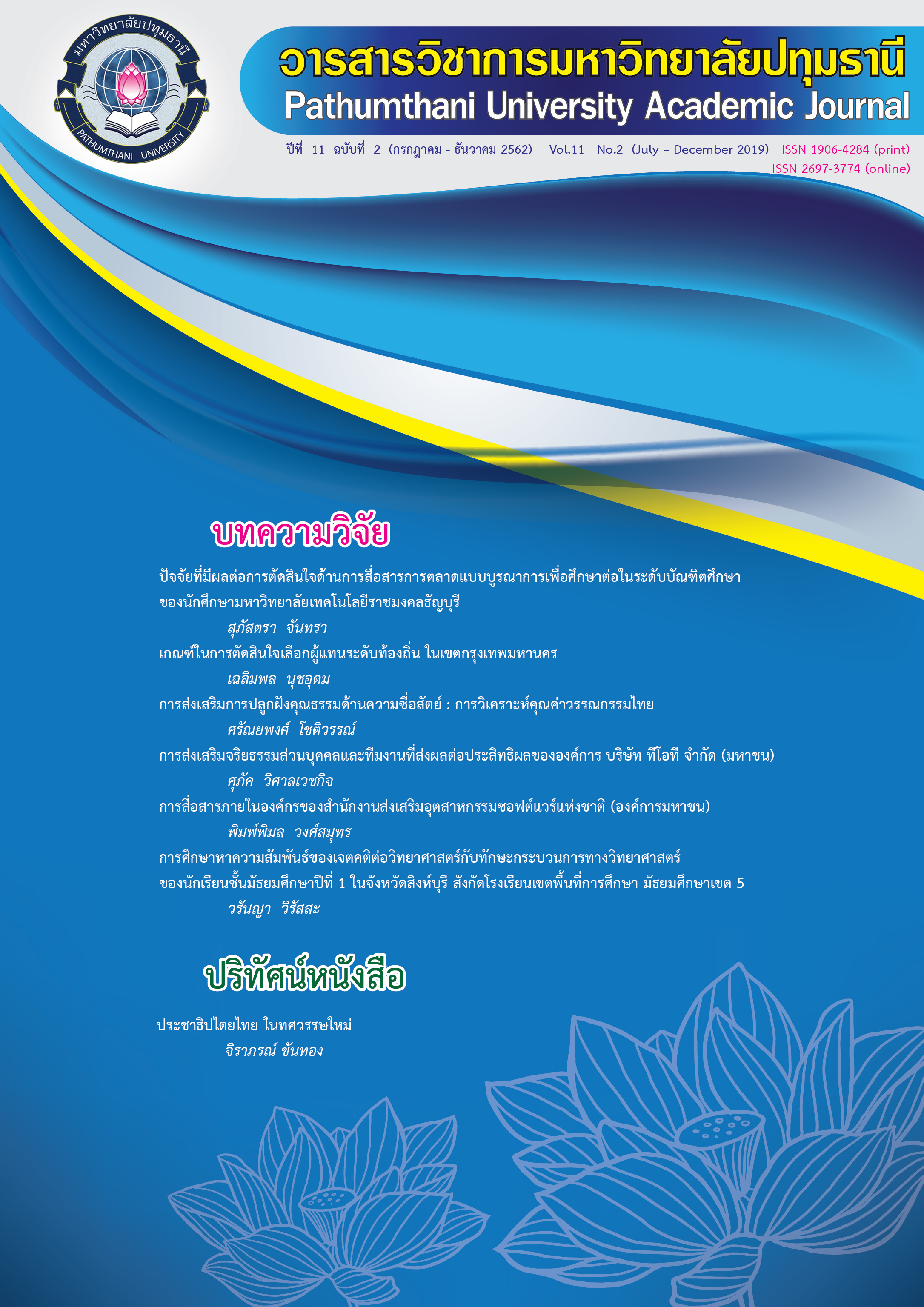Total Quality Management (TQM) for Japanese Companies and Their Implementation in Companies in Indonesia
Keywords:
total quality management, kaizen, continuous improvementAbstract
The forerunner of Total Quality Management (TQM) in Japanese companies and their implementation in companies in Indonesia, using analysis of critical factors that support and hinder the effectiveness of these implementations. This research method uses descriptive analysis with survey approaches, observation techniques and literature studies. Total Quality Management that binds to Japanese companies is inseparable from Kaizen culture, so that Japan applies the principle of customer satisfaction, Quality Function Development (QFD), employee empowerment, continuous improvement in its company. Continuous improvement in various fields, respect and teamwork is the key to the success of Total Quality Management in Japanese companies.
References
2.Banker, R., G. Potter, dan R. Schroeder. (1993). “Exporting Manufacturing Performance Measures To Worker: An Empirical Study”. Journal of Management Accounting Research: 33-35.
3.Cane. (1998). Establishing Kaizen Culture. Circuit Assemble, November.
4.Daniel, S., dan W. Reitsperger. (1991). Linking Quality Strategy With Management Control Systems: Empirical Evidence From Japanese Industry. Accounting, Organizations and Society. 17 : 601-618
5.Dowling, P. & Welch, D. E. (2004) International Human Resource Management: Managing People in a Multinational Context. 4th edition, London UK, Thomson Learning.
6.Dowling, Peter J, Marion Festing and Allen D. Engle. (2008). International Human Resource Management : Managing People in a Multinational Context. Fifth Edition, South- Western Cengage Learning, United Kingdom
7.Gaspersz, Vincent. (1998). Manajemen Produktivitas Total. Jakarta.Gramedia Pustaka Utama.
8.Gaspersz, Vincent. (2001). Total Quality Management. Jakarta : Gramedia Pustaka Utama.
9.Handayani, (2005). Kaizen Culture, Education and Training, New York: Irwing Professional
10.Hansen, Don R. and Mowen Maryanne M. (2000). Management Accounting. Cincinnati Ohio: South-Western College Publishing.
11.Hari Purnomo, Pengantar Teknik Industri, Graha Ilmu. (2004). Yogyakarta.
12.Hitoshi Takeda. (2006). The Change Management Handbook. New York: Irwing Professional
13.Horngren, Charles T., George Foster., Srikant M. Datar. (2000). Cost Accounting: A Managerial Emphasis. International Edition.
14.Jurnal Akuntansi. (2012, November). “Pengaruh Penerapan Total Quality Management (TQM) dan Komitmen Organisasi terhadap Kinerja Perusahaan dengan Budaya 15.Organisasi Sebagai Variabel Moderasi” Survei padaPerusahaan Manufaktur di Jawa Barat yang Listing di BEI. Vol.4 No.2 : pp.175-186
16.Jurnal Akuntansi. (2013, April). “Pengaruh Total Quality Management Terhadap Kinerja Financial”. Study Pada Perusahaan Jasa di Kota Pekanbaru Provinsi Riau. Vol. 1 (No. 2) : pp.213-226.
17.Krajewski, J. Lee and P. R. Larry. (2006). Operations Management Strategy and Analysis. Fifth Edition, Addison-Wesley Publising Company Inc.
18.Kujala, J., & Lillrank, P. (2004). “Total quality management as a cultural phenomenon”. Quality Management Journal, 11(4), 43-55.
19.Lincoln, J. R. (1989). “Employee work attitudes and management practice in the US and Japan”. California Management Review(Fall), 89-106.
20.Locke,E., dan G. Latham. (1990). Goal Setting Theory and Task performance. New York: Prentice Hall.
21.Masaaki Imai. (1998). Genba Kaizen : Pendekatan Akal Sehat, Berbiaya Rendah Pada Manajemen. Jakarta, Pustaka Brinaman Pressindo.
22.Majalah Ekonomi Tahun XVII. (2007). Total Quality Management, Sistem Pengukuran Kinerja. Sistem Penghargaan Dan Kinerja Manajerial
23.Martin Fackler. (2010). In Toyota Mess, Lesson for Japan, The New York Times, 8 Februari. (http://www.nytimes.com/2010/02/09/business/global/09toyota.html)
24.Masaaki Imai. (1991). Kaizen : The Key to Japan's Competitive Success. Singapore, McGraw-Hill International
25.Masaaki Imai. (1998). Genba Kaizen: Pendekatan Akal Sehat, Berbiaya Rendah Pada Manajemen. Jakarta, Pustaka Brinaman Pressindo.
26.Motwani, Jaideep (2001). Critical Factors and Performance Measures of TQM, The TQM Magazine, 13(4), 292 – 300
27.Nilda Tri Putri & Sha'ri Mohd Yusof. (2008). “Critical Success Factors for Implementing Quality Engineering (QE) In Malaysian's and Indonesian's Automotive Industries: 28.A Proposed Model. (2008). "Korea Automotive Research Institute". IJAIM, Vol. 2 (December 2008), 1-15
29.Noguchi, J. (1995). “The legacy of W. Edwards Deming”. Quality Progress, 28(12), 35-37.
30.Prajogo D.I., A.S. Sohal (2000). TQM and innovation: A literature review and research framework, Technovation hal 539–558
31.Poropat, Arthur & John Keller. (n.d). Buddhism and TQM: An Alternative Explanation of Japan’s Adoption of Total Quality Management. Department of Management, Griffith Business School, Griffith University, Australia.
32.Prajogo, Daniel. I., and Brown, A. (2004). “The Relationship Between TQM Practice and Quality Performance and the Role of Formal TQM Programs: An Australian Empirical Study”. Quality Management Journal. 11 (4), pp.31-42
33.Reader, I., Andreasen, E., & Stafansson, F. (1993). Japanese religions: Past and present. Honolulu: University of Hawaii Press.
34.Sila, I. (2007). Examining the effects of contextual faktors on TQM and performance through the lens of organizational theory: an empirical study, Journal of Operations Management, Vol. 25, No. 1, pp. 83-109.
35.Sisnuhadi. (2014). “The Relationship between Soft Factors and Hard Factors of TQM Practices and Organizational Learning”. European Scientific Journal, March 2014 edition, vol. 10, Mo. 7.
36.Tjiptono, Diana. (2003). Total Quality Management, Andi Yogyakarta.p.15-18
Downloads
Published
How to Cite
Issue
Section
License
บทความที่ได้รับการตีพิมพ์เป็นลิขสิทธิ์ของวารสารมหาวิทยาลัยปทุมธานี
ข้อความที่ปรากฎในบทความแต่ละเรื่อง เป็นความคิดเห็นส่วนตัวของผู้เขียน กองบรรณาธิการไม่จำเป็นต้องเห็นด้วยเสมอไป และไม่มีส่วนรับผิดชอบใด ๆ ถือเป็นความรับผิดชอบของผู้เขียนแต่เพียงผู้เดียว



